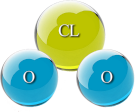Ankylosing spondylitis remission
From dioxipedia
Medical Report
Patient Information:
- Age: 53 years
- Medical History:
- Diagnosed with Ankylosing Spondylitis (AS) at age 27
- Experienced recurrent diverticulitis flare-ups due to long-term use of NSAIDs, Prednisone, and other medications over the past decade
Treatment Overview
Treatment Initiation Date: March 20, 2023
Initial Treatment: MMS1 (switched to Chlorine Dioxide Solution (CDS) a few months later)
Clinical Findings
The patient reports significant improvements in their health status since initiating treatment with CDS. Prior to treatment, the patient experienced:
- Flare-up Frequency: Four to six severe flare-ups per year
- Duration of Episodes: Lasting one to four weeks per episode
- Symptoms: Severe back pain and reduced mobility due to AS; recurrent diverticulitis flare-ups
Current Status
Since the start of CDS treatment:
- Flare-ups: The patient has not experienced any episodes of Ankylosing Spondylitis or diverticulitis in the past year.
- Medications: The patient is now prescription-free, having discontinued all previous medications.
- Additional Health Improvements: Various ancillary health issues reported by the patient have resolved after approximately five months of using CDS.
Conclusion
The patient expresses considerable relief and gratitude for the outcomes associated with CDS treatment. The absence of debilitating flare-ups and the cessation of prescription medications mark a significant improvement in the patient's quality of life. No adverse effects have been observed
